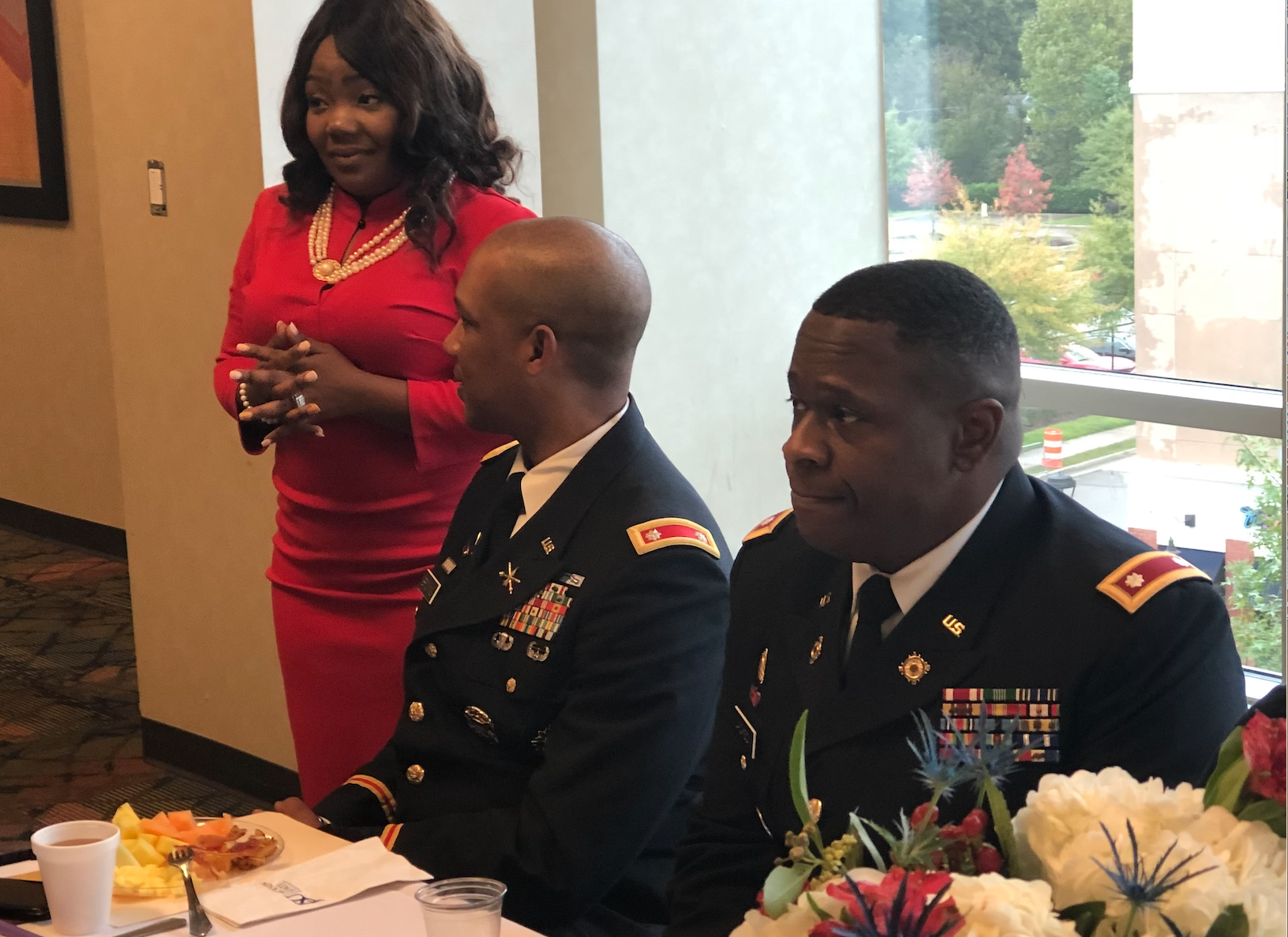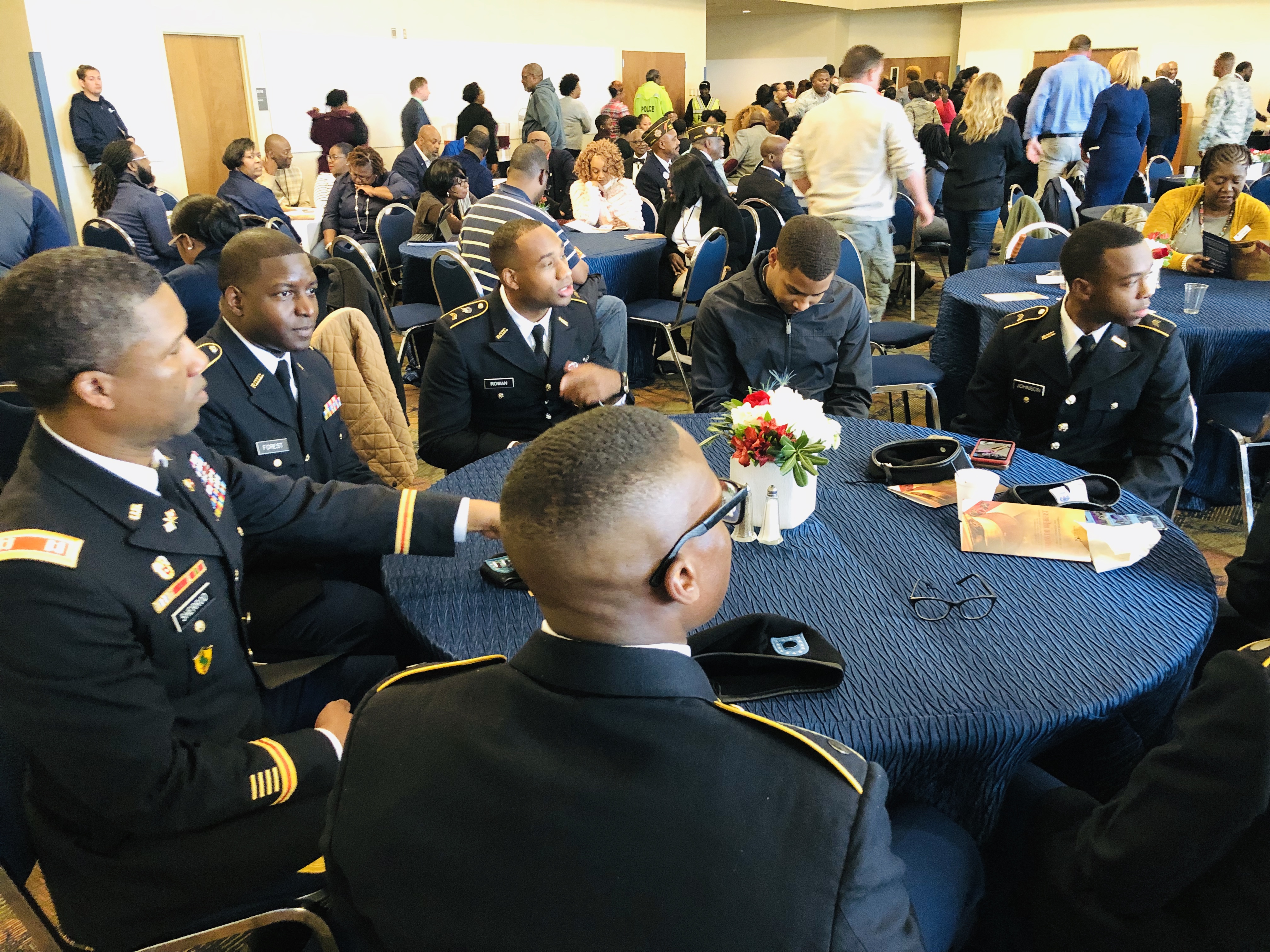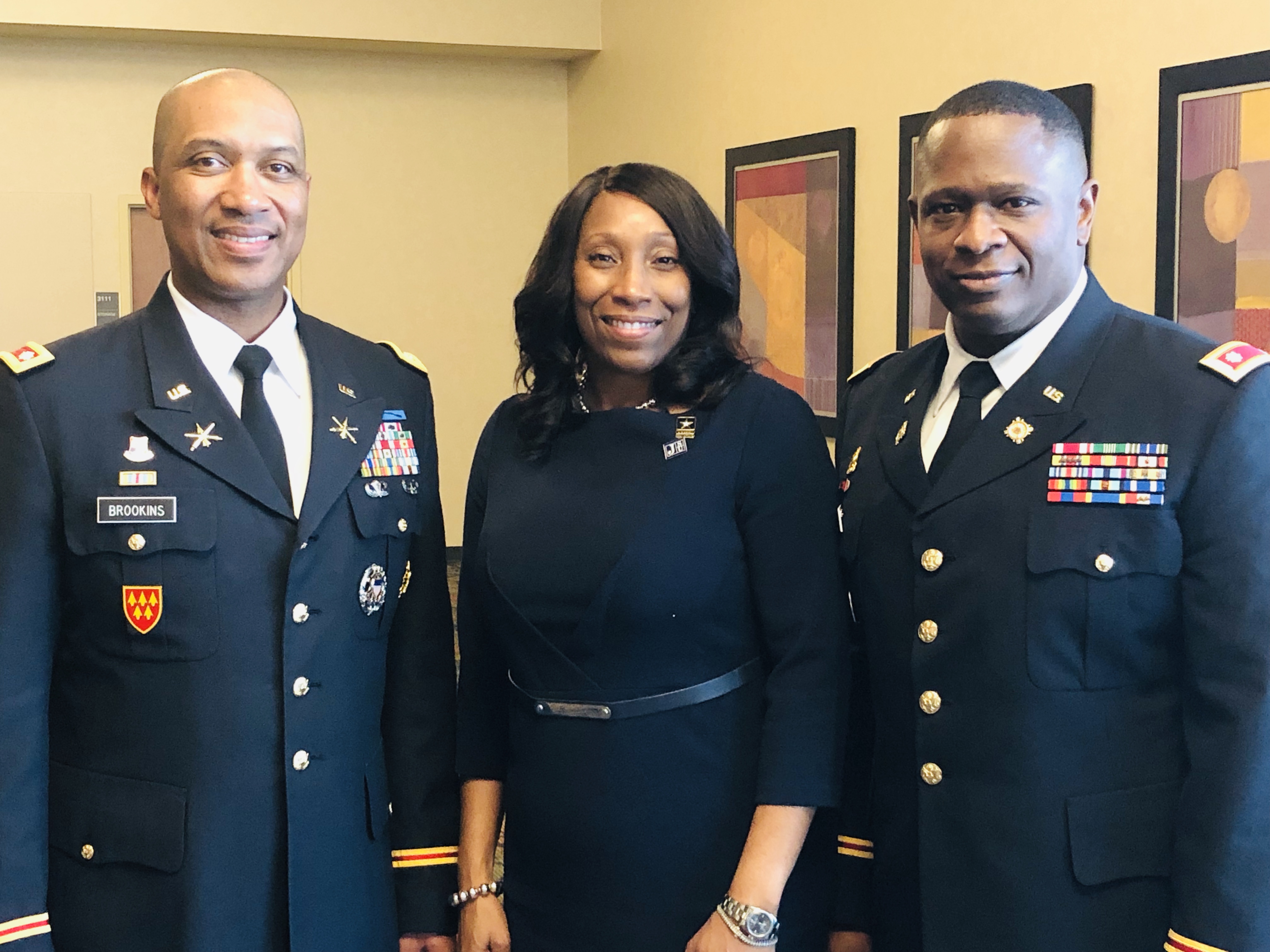
![]()
[hr]During Veterans Day observance at JSU, a longtime military officer of the U.S. Army Reserve/Mississippi Army National Guard and Operation Iraqi Freedom reminded cadets, comrades and retired service members of the five seeds to success.
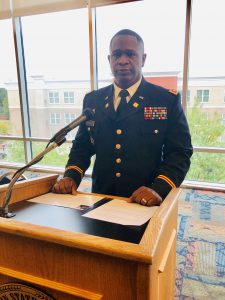
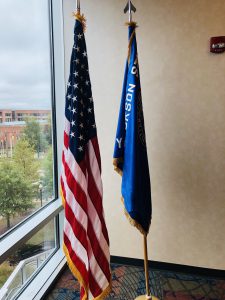 Keynote speaker and JSU alum Lt. Col. G. Torrie Jackson Jr. is commander of the 5thLogistic Civil Augmentation Program Support Battalion in Sheffield, Alabama. He has served 30 years in various capacities.
Keynote speaker and JSU alum Lt. Col. G. Torrie Jackson Jr. is commander of the 5thLogistic Civil Augmentation Program Support Battalion in Sheffield, Alabama. He has served 30 years in various capacities.
The occasion was sponsored by Jackson State University’s Division of Students Affairs and the Office of Veteran and Military Student Support.
During the event, Jackson said, “One of the important things about recognizing Veterans Day is so that you can continue to have veterans. When people who are not in the military see veterans being recognized it gives them the incentive to get involved in something that brings appreciation from others. You pay it forward and backward.”
A hero’s success
Speaking inside the JSU Student Center Ballroom, he advised the audience against measuring success in terms of money or title. Rather, he said, a hero’s success is tied to the following key principles:
- Courage: “Do what is right at the right time in the face of fear. Keep focus on what it takes to be successful.”
- Competence: “Know how to get it done. If I know my job and I am comfortable with my skills, this gives me courage to take a stand and make hard decisions. Remember, the world does not owe you anything. It knows that and will treat you that way.”
- Confidence: “Know your job because confidence brings courage.”
- Candor: “Being truthful starts with yourself. Know what your strengths and weaknesses are … Lean on someone who is strong where you’re weak. … I’m a procrastinator. … Sometimes I need people to tell me I need to get going.”
- Commitment: “You can’t use this word lightly. … If you’re truly committed, you must be all in. … The race is not given to the swift nor the strong but unto them that endure to the end.”
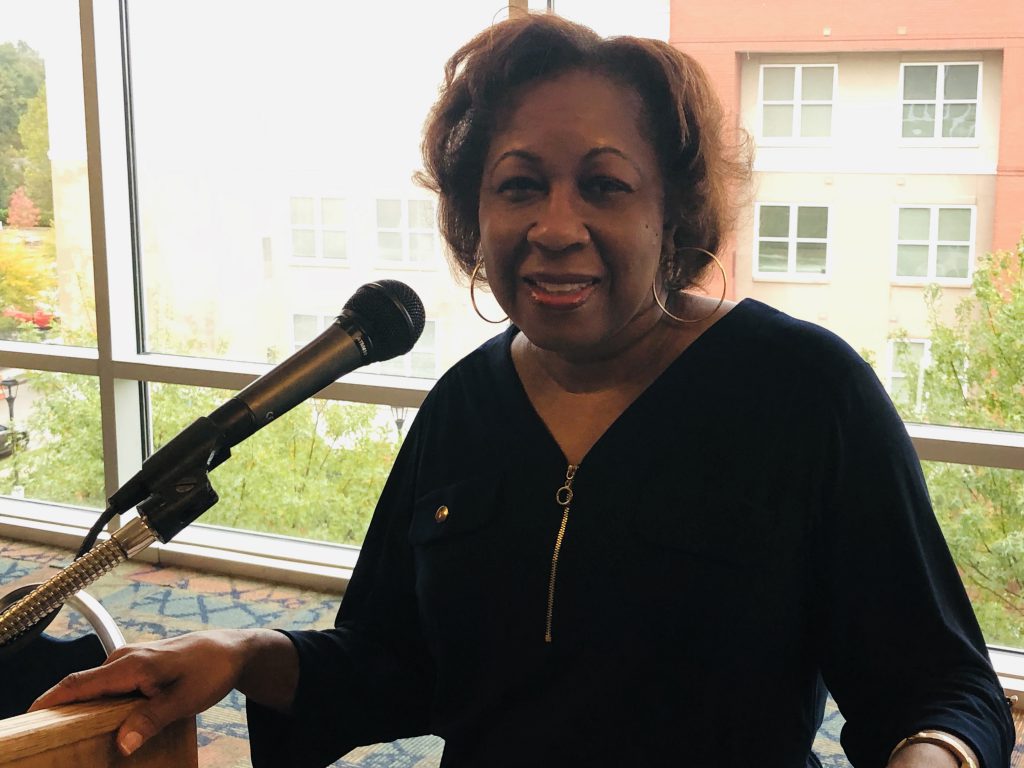
Lt. Col. Dexter M. Brookins, chair and professor of the Department of Military Science, said the event was outstanding because we were able to recognize our veterans on campus and throughout the city of Jackson,” he said.
Role of first responders
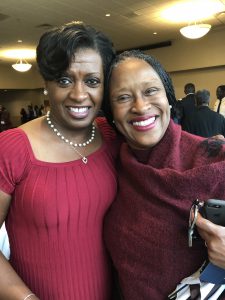
Brookins added, “A lot of first responders were here because they go through a lot, too. When I was deployed as a military guy I expected to get shot at by the bad guy. Now, first responders are going through a different thing here in America. So, this Veterans Day was outstanding because we have a lot of folks who are still serving. We’re happy to be recognized by civilians who thank us for our service to this nation.”
He especially expressed gratitude to JSU administrators for their commitment to veterans, service members and ROTC cadets. As well, he applauded partner schools involved with the Tiger Battalion for their commitment to defending the U.S.
He listed the partners as Delta State University, Mississippi Valley State University, Belhaven University, Mississippi College, Millsaps College, Tougaloo College; the University of Mississippi Medical Center; and Mississippi College School of Law.
Meanwhile, Jackson, who is also a school administrator for the Holmes County School District Central High School, described the caliber of a good leader.
“While everyone can be a hero, you have to look at characteristics that make up a hero,” said Jackson, also a lieutenant for the Hinds County Sheriff’s Office Reserve Division.
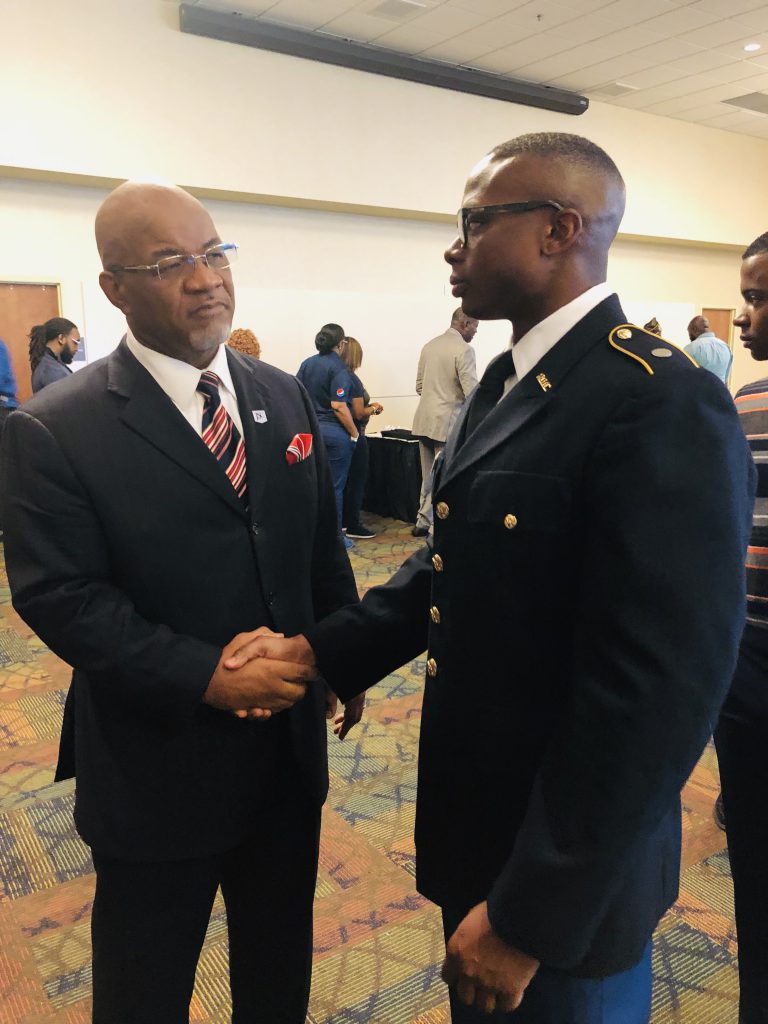
He said a person sometimes becomes a hero “on the spot” without knowing it. The individual is able to produce extraordinary results by applying the five seeds.
Christopher Hines, a JSU graduate cadet studying criminology, said the most important word that stood out to him from Jackson’s message was commitment. “You have to be dedicated to what you do. You must be consistent with your performance.”
The cadet said he aims to give back to the community and the U.S. through 25 years of service and, ultimately, as a general. “I give thanks to all the veterans who served to protect us.”
‘Die for freedom’
In further remarks after his keynote address, Jackson re-emphasized the importance of cadets taking a stand.
“In the military, we call it falling on your sword. That’s how we got to this point as a country. We were willing to die for freedom. If a man has nothing to die for, he has nothing. You won’t know that until you’re faced with that challenge.”
He said former NFL player Colin Kaepernick illustrated this point when he kneeled for the national anthem.
“As it relates to Kaepernick, I have more of a problem when people are moving around talking on their cell phones, laughing, joking and doing other things during the national anthem versus someone kneeling for a cause, especially if it’s already been explained,” he said.
“I don’t find it offensive or disrespectful because at the end of every soldier’s life you have another soldier who kneels at the feet of a loved one and presents the family with a folded flag. That’s the reason that Kaepernick chose to kneel versus sit.”
He said the decision by Kaepernick wasn’t done without deep contemplation.
Jackson said, “A white veteran called Kaepernick, and they had a conversation about Kaepernick’s protest. That veteran urged Kaepernick to show honor by kneeling rather than sitting.”
In the end, “we fought for people to have freedom of expression,” Jackson said.
